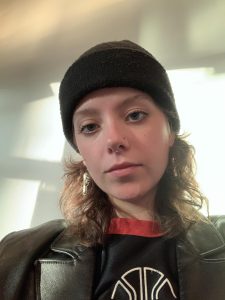Through H.B. 249, Rep. Walt Brooks (R-St. George) aims to prohibit government bodies from granting legal personhood to entities such as animals, plants, land, bodies of water and atmospheric gases.
As the environment rapidly deteriorates, an innovative solution like environmental personhood may be the answer to protecting bodies like the Great Salt Lake. The Utah legislature should take measures to prioritize environmental welfare rather than seek to interrupt endeavors in its favor.
Allowing legal personhood status for non-human environmental bodies opens doors to environmental advocacy and protects the rights and culture of Indigenous peoples. Under H.B. 249, Utahns will live in a hypocritical system allowing corporations personhood yet denying that opportunity to some of the state’s most valuable entities.
Legal Personhood
Legal personhood grants non-human entities the essential rights and protections that humans have. Recognizing environmental personhood can generate change for a suffering environment.
Ecuador was the first country to legally facilitate environmental personhood. Its constitution recognizes the right of Mother Earth to “maintain and generate its cycles, structure, functions, and evolutionary processes.” Because of this legal stipulation, Ecuador’s government revoked a mining company’s permit when it began to operate in a protected region of the rainforest.
Legal personhood also has precedent in the U.S. In 2019, the Yurok Tribe in northern California granted personhood to the Klamath River. This means that the Yurok people can bring action against people who harm the river, such as polluters.
Granting legal personhood to objects in the natural world could enable proactive and reactive measures to prevent further environmental degradation. Locally, the Great Salt Lake is suffering and its continued decline significantly threatens communities around Utah.
Entitling environmental bodies like the Great Salt Lake to their own set of legal rights could mobilize change. The majority of Utahns support this endeavor — about 60%, according to a 2023 survey conducted by Utah State University. Such support indicates the importance of the natural world to Utah’s citizens, who are supposed to be represented by the state legislature.
Misplaced Priorities
Rep. Brooks said that legal personhood has been “weaponized” when used for things other than individual persons. Personhood has certainly been and is actively being abused, though not in the way that Utah legislators are concerned about.
The Alabama Supreme Court ruled in February that frozen embryos are legally considered children. Rep. Brian King, who voted against H.B. 249, voiced his concerns about this matter.
“Talk about an abuse of the idea of legal personhood,” King told the Chronicle. “That strikes me as much more controversial than anything that we were talking about in connection with this bill.”
Corporations also already have legal rights — a reality that has opened the door for distasteful actions. A case in 2014 involved a lawsuit on the part of Hobby Lobby. The lawsuit was made in response to the Affordable Care Act, which required the coverage of certain contraceptive methods in healthcare plans. The company alleged that including birth control in their health insurance plan infringed on their right to religious freedom. Hobby Lobby won the case and a new precedent for corporate personhood was established.
The attitude of Utah’s legislature towards the concept of environmental personhood looks like a reckless and premature dismissal of a potential solution.
The state’s future lies in the health and prosperity of its natural bodies. Without intentional — perhaps radical — change, Utahns face a bleak reality.
Indigenous Rights
The Utah legislature consistently neglects to consult tribal nations when making environmental decisions, despite the tribes’ connections to the land and the disproportionate impacts of climate change that Indigenous peoples sustain.
H.B. 249 disrespects the belief systems of Indigenous communities, which acknowledge humanity as part of nature and inextricably linked with it.
“There’s a common Native belief that all things are alive and have spirit,” Dustin Jansen, director of the Utah Division of Indian Affairs, told the Chronicle. Because of that, he said, tribes hold an accountability and responsibility towards living things.
The bill “might take away from the argument that these things are alive and they need protection,” Jansen said. Legislators must treat environmental policy making with more care, consulting Indigenous communities and opening up possibilities rather than shutting them down.
H.B. 249 has passed in the House and the Senate. Utahns must continue to speak out against this legislation while advocating for other solutions that will protect Great Salt Lake and other vital Utah entities.





